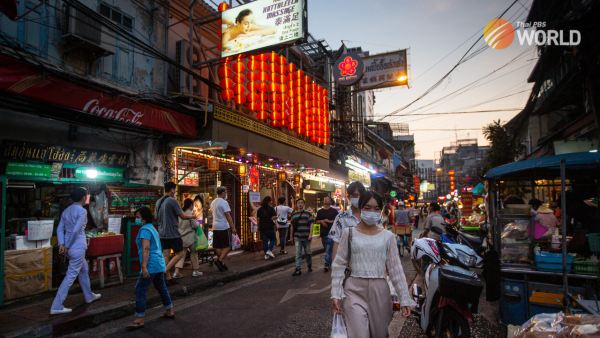Three of Thailand’s business, banking and capital market gurus are optimistic about the country’s improved economic performance this year, with a tourism boom, increased foreign investment and exports, which will drive the growth rate to 3.8%.
Sanan Angubolkul, chairman of the Thai Chamber of Commerce, told a seminar on Wednesday that he expects as many as 30 million foreign tourists to visit Thailand this year, compared to 11.8 million last year which, he said, will boost the service sector and increase employment, as he urged the government to step up promotional campaigns to attract more Chinese arrivals.
He said that the Thai private sector has been cooperating with the government to attract more Chinese investment, but he urged the government to provide incentives and reduce red tape, to facilitate doing business in Thailand for foreign investors, Chinese included.
Even though most Thais are not proficient in Chinese languages, Sanan said that Thailand has other advantages, which Chinese businessmen find attractive.
Thai exports this year are expected to expand 1-2% as the private and government sectors additional explore markets for Thai exports, said Sanan, as he cited the case of Saudi Arabia, which has resumed normal trade with Thailand.
He further said that Thailand is trying to negotiate for free trade area (FTA) agreements with more countries in order to explore new markets for Thai products.
He also proposed that the government help small and medium-sized enterprises (SMEs) get access to funding and consider granting tax incentives so they enter the tax system.
Deputy Governor of the Bank of Thailand for Monetary Stability, Mathee Supapongse, said that the global economy is still slowing, but growth and inflation in individual countries vary from one country to another.
In the case of Thailand, he said inflation this year will not be as high as it was last year, when food and energy prices doubled, but businesses still bear the burden of inflation as reflected in the high prices of products.
He said that it is unnecessary for Thailand to adjust its policy interest rate in tandem with the US, even though that may cause an outflow of foreign capital from Thailand.
He noted that, in the fourth quarter of last year, foreign capital inflow was reported, as he explained that the interest rate is not the only factor that determines investment decision-making, adding that foreign investors also look at the economic situation, foreign reserves, foreign debt, environmental and social conditions and governance.
Pakorn Peetathawatchai, president of the Stock Exchange of Thailand, said that Thailand’s economy is recovering, with an expected higher growth rate, adding that, in January, about a US$700 million capital inflow was recorded, while the baht currency strengthened to 34 baht per US dollar, compared to 38 baht at the end of last year.
The strong points of Thailand are the food industry and tourism, although they are considered as old industries, said Pakorn, adding that new technology has been introduced in the food industry, including the production of plant-based food.
The SET has tried to help small enterprises to raise funding from the public by introducing a stock market for SMEs, called “live exchange”, he said.

IL PRIMO ECOMMERCE SPECIALIZZATO IN DELIZIE AL TARTUFO E CAVIALE – CAVIAREAT.COM
